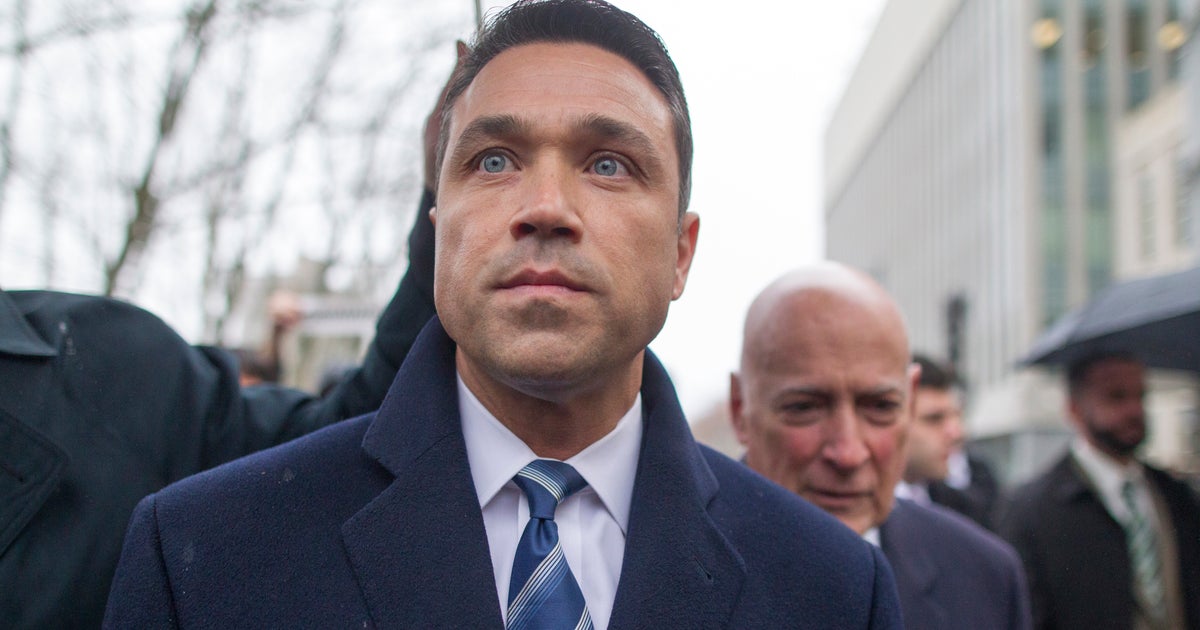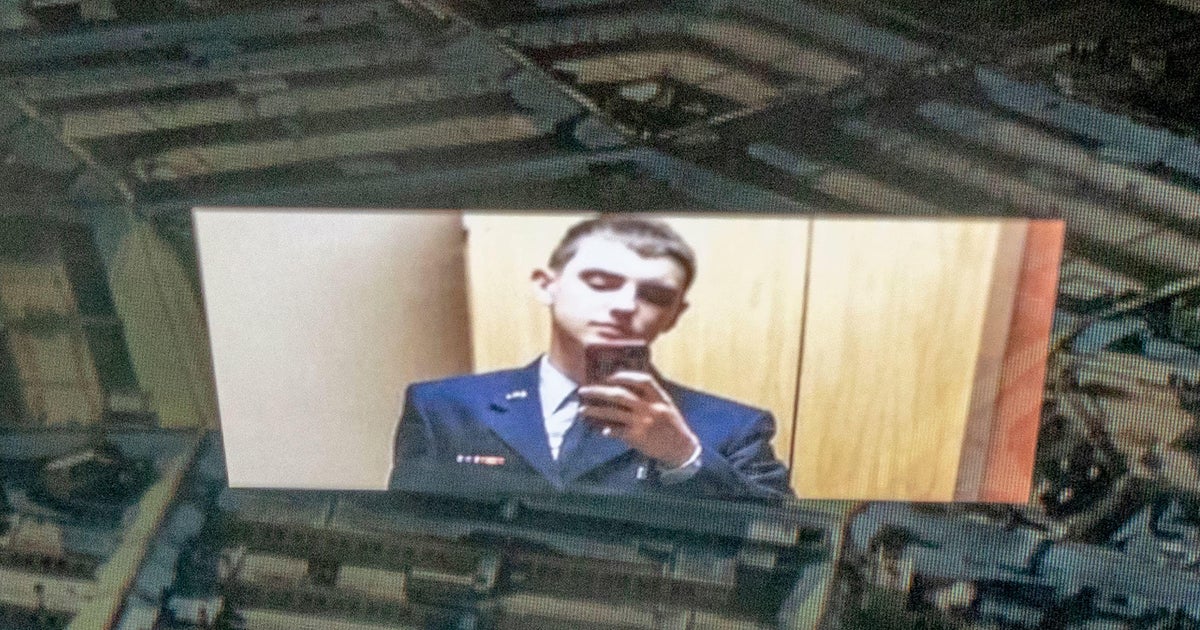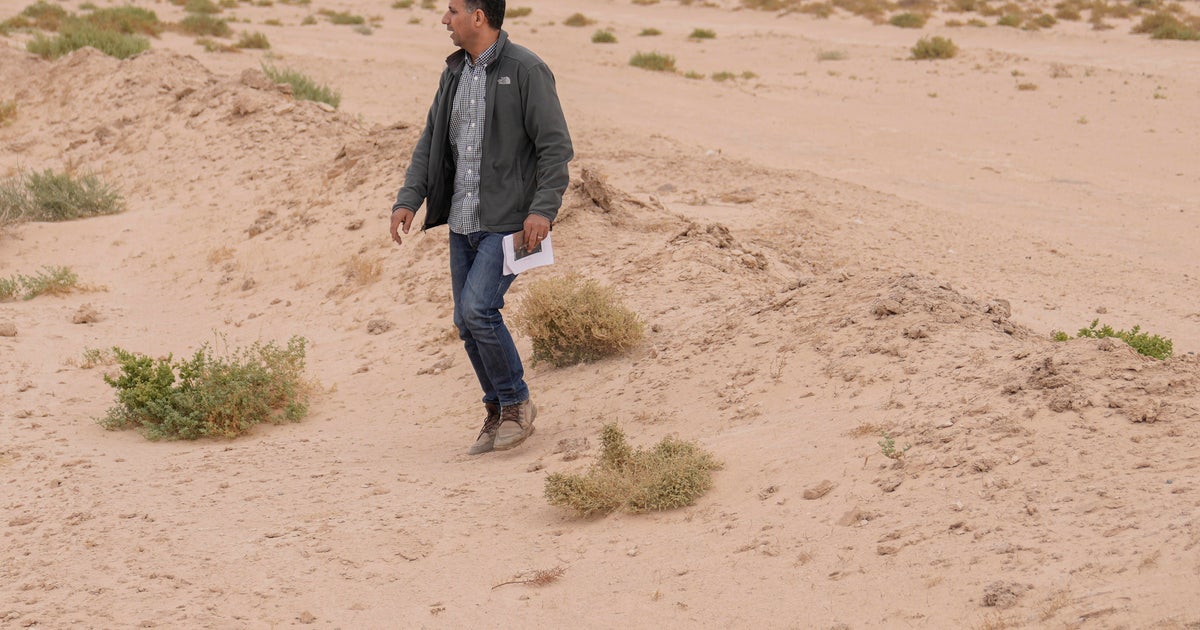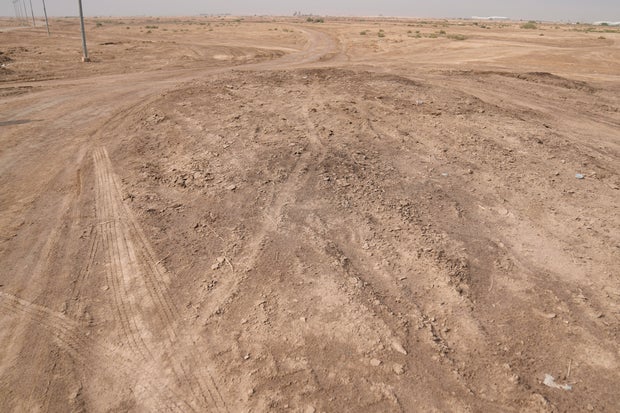CBS News
Trump, Harris highlight economic policies

Watch CBS News
Be the first to know
Get browser notifications for breaking news, live events, and exclusive reporting.
CBS News
Former New York Rep. Michael Grimm is paralyzed after being thrown from horse during polo tournament, friends say

Former U.S. Rep. Michael Grimm, a New York Republican who resigned from Congress following a tax fraud conviction, is paralyzed from the chest down after being thrown from a horse during a polo tournament, according to friends who are raising funds to pay for the ex-lawmaker’s medical care.
Grimm, 54, suffered the devastating injury in September and is now being treated at the Kessler Institute for Rehabilitation in New Jersey, where the late actor Christopher Reeve was treated after a similar equestrian accident in 1995, according to Vincent Ignizio, a friend of Grimm’s who is a former New York City Council member.
Grimm had been an avid polo player for years, Ignizio said. “It was a passion of his and he suffered a tragic accident at the end of September,” said Ignizio, who has set up a GoFundMe account to pay for Grimm’s medical care.
“Through the grace of God and the amazing medical teams who have helped him, Mr. Grimm has miraculously thread the needle to survive,” the GoFundMe accounts says. “Yet, his ongoing care and the treatment to walk again will cost millions of dollars.”
A former Marine and FBI agent, Grimm represented Staten Island and a part of Brooklyn in Congress from 2011 to 2015.
A federal investigation into Grimm’s fundraising that started in 2012 ultimately resulted in a 20-count indictment centered on a restaurant Grimm ran in Manhattan. Prosecutors said he underreported wages and revenue to the government and filed false tax documents.
Michael Graae, Getty Images
Grimm was separately under investigation for alleged campaign finance violations relating to his fundraising in the 2010 race.
Grimm won reelection in 2014 despite the indictment but pleaded guilty the following month to one count of tax fraud. He resigned from Congress in January 2015 and served eight months in prison.
Grimm attempted a comeback in 2018 but lost a Republican primary for his old district to incumbent Rep. Dan Donovan, who then lost the general election to Democrat Max Rose.
Republican Rep. Nicole Malliotakis defeated Rose in 2020 and has represented the district since then.
Grimm has recently worked as a host on Newsmax.
The GoFundMe for Grimm’s medical care had raised over $260,000 as of early Tuesday. “His ultimate goal is to get himself to walk again,” Ignizio said.
On Monday, New York City Mayor Eric Adams said in a social media post that he was “deeply saddened” by Grimm’s accident.
“Congressman Grimm is a Marine veteran, and as we honor our nation’s servicemembers this Veteran’s Day, l hope for a full and speedy recovery,” Adams wrote.
CBS News
Pentagon leaker Jack Teixeira to be sentenced for violating Espionage Act

Former Massachusetts Air National Guardsman Jack Teixeira, who admitted he illegally posted sensitive military information to online chat rooms in what prosecutors called one of the “most prolific” and “rare” government leak operations, is set to be sentenced in a Boston courtroom on Tuesday.
Teixeira, a 22-year-old Massachusetts native, pleaded guilty in March to six counts of violating the Espionage Act, acknowledging he was behind the yearlong distribution of dozens of classified government documents — including some marked “top secret” — on Discord, a social media platform. The classified documents involved in the leak touched on a number of sensitive issues, but the most notable were about Russia’s war in Ukraine, detailed troop movements and timelines for Western weapons deliveries to the war-torn country, investigators said.
Federal law enforcement arrested Teixeira at his family’s Massachusetts home after a weekslong probe into how sensitive Pentagon records were ending up online.
Prosecutors have asked a federal judge to sentence the defendant to 200 months in prison — almost 17 years — for his central role in “one of the most significant and consequential violations of the Espionage Act in American history,” one that has prompted reforms in the handling of classified information.
“The harm the defendant caused to the national security from his disclosures of national defense information is extraordinary,” prosecutors wrote in an October court filing.
For over a year, investigators said Teixeira, who had top secret security clearance as an IT worker at the Otis Air National Guard Base,accessed the classified documents illegally and either hand-copied the information or printed the records before posting the data in the Discord chat rooms. He even messaged individuals in his forums and offered to find specific information about “happenings that pertain to your country,” court records said.
The national defense information began appearing online in February 2022, but investigators didn’t link the leaks to Teixeira for over a year. Prosecutors alleged Teixeira knew his conduct was illegal and accused him of violating his oath to serve.
As the investigation into the leaks zeroed in on Teixeira’s unit, prosecutors alleged in previous court documents that Teixeira began instructing others in the Discord group to “delete all messages.”
“[i]f anyone comes looking, don’t tell them sh**,” he allegedly wrote to one user. And he told another, “Try to delete all my messages in civil discussions.”
“In the aggregate, the defendant’s criminal conduct over the course of more than a year ‘critically and negatively impacted’ the Department of Defense’s mission, endangered his fellow soldiers, other citizens, and allied governments throughout the world,” prosecutors argued last month, urging the judge to impose a heavy sentence.
Teixeira’s defense attorney, however, asked for a sentence of 11 years in prison, telling the judge, “His intent was never to harm the United States,” but to “educate his friends about world events to make certain they were not misled by misinformation.”
Revealing that Teixeira was diagnosed with autism, his lawyer wrote in an October court filing that “his motives and decisions were naïve, not nefarious.” Teixeira accepted responsibility for the admitted crimes, including by participating in an hourslong briefing with members of the intelligence community, the defense filings argued.
“The actions of Jack Teixeira are inexcusable,” the attorney wrote, describing his client not as a criminal leaker but as a misguided young person swept up in an online ecosystem. “However, Jack is still essentially a child – at the very least, a ‘youthful offender’ – who has his whole life in front of him.”
Following Teixeira’s arrest, the Air Force inspector general found that individuals in his Massachusetts unit failed to take proper action after at least four separate security incidents. Members of his unit “enabled” the leaks by not properly supervising his access to classified information, the review concluded. The Air National Guard took action against 15 individuals for “dereliction in the performance of duties” as a result of the report’s findings.
Texeira also faces charges of disobeying orders and obstructing justice in a military court martial, which are expected to be adjudicated in March.
Eleanor Watson contributed to this report.
CBS News
Site of ancient, key battle in Iraq found by archeologists using spy satellite images

Beirut — Declassified 1970s-era U.S. spy satellite imagery has led a British-Iraqi archeological team to what they believe is the site of a seventh-century battle that became decisive in the spread of Islam throughout the region.
The Battle of al-Qadisiyah was fought in Mesopotamia — in present-day Iraq — in the A.D. 630s between Arab Muslims and the army of the Sassanid Persian dynasty during a period of Muslim expansion. The Arab army prevailed and continued on its march into Persia, now Iran.
A joint team of archeologists from the U.K.’s Durham University and the University of Al-Qadisiyah stumbled across the site while undertaking a remote sensing survey to map the Darb Zubaydah, a pilgrimage route from Iraq’s Kufa to Mecca in Saudi Arabia built more than 1,000 years ago. The findings were published Tuesday in the journal Antiquity.
Hadi Mizban / AP
While mapping the route, the team noticed that a site some 20 miles south of Kufa in Iraq’s southern Najaf province — a desert area with scattered plots of agricultural land — had features that closely matched the description of the al-Qadisiyah battle site described in historic texts.
William Deadman, a specialist in archaeological remote sensing at Durham University, said the Cold War era satellite images are commonly used tools by archeologists working in the Middle East because the older images often show features that have been destroyed or altered and wouldn’t show up on present-day satellite images.
Hadi Mizban / AP
“The Middle East has developed so much in the last 50 years, both agricultural expansion and urban expansion,” he said. Some of the distinguishing features at the al-Qadisiyah site, such as a distinctive trench, were “much more pristine and clear” in the 1970s images, he said.
A survey on the ground confirmed the findings and convinced the team that they had correctly identified the site.
The key features were a deep trench, two fortresses and an ancient river that was reportedly once forded by elephant-mounted Persian troops, said Jaafar Jotheri, a professor of archeology at the University of Al-Qadisiyah who’s part of the team that made the discovery. The survey team also found pottery shards consistent with the time period when the battle took place.
A revealing, well-known battle
Jotheri said Iraqis of his generation, who grew up under the rule of Saddam Hussein, were all familiar with the battle in minute detail, down to the names of the generals on both sides.
The battle at the time had political connotations — Iraq was engaged in a devastating war with Iran through much of the 1980s. Saddam pointed to the Battle of Qadisiyah as a harbinger of victory for Iraq.
Like most children growing up in that era, Jotheri said he’d watched a popular movie about the battle multiple times as it was on regular rotation on television.
In the post-Saddam era, al-Qadisiyah has become something of a political litmus test. Iraqis’ views of the battle vary depending on their feelings toward Iran, which has expanded its influence in the country since the 2003 US-led invasion of Iraq that toppled Saddam.
“There is some political and religious context in this battle because now, of course, we have religious differences, ethnic differences, political differences in Iraq and we read or we view everything based on our … differences,” Jotheri said. But he added, “We all agree that it is a very important battle, a decisive one, and we all know about it.”
Discovery was part of a regional trend
The team plans to begin excavations at the site in the coming year, Jotheri said.
The discovery comes as part of a broader project launched in 2015 to document endangered archaeological sites in the region.
It also comes at the time of a resurgence of archeology in Iraq, a country often referred to as the “cradle of civilization,” but where archeological exploration has been stunted by decades of conflict that halted excavations and led to the looting of tens of thousands of artifacts.
In recent years, the digs have returned and thousands of stolen artifacts have been repatriated.










